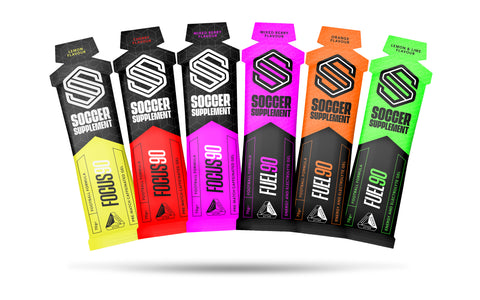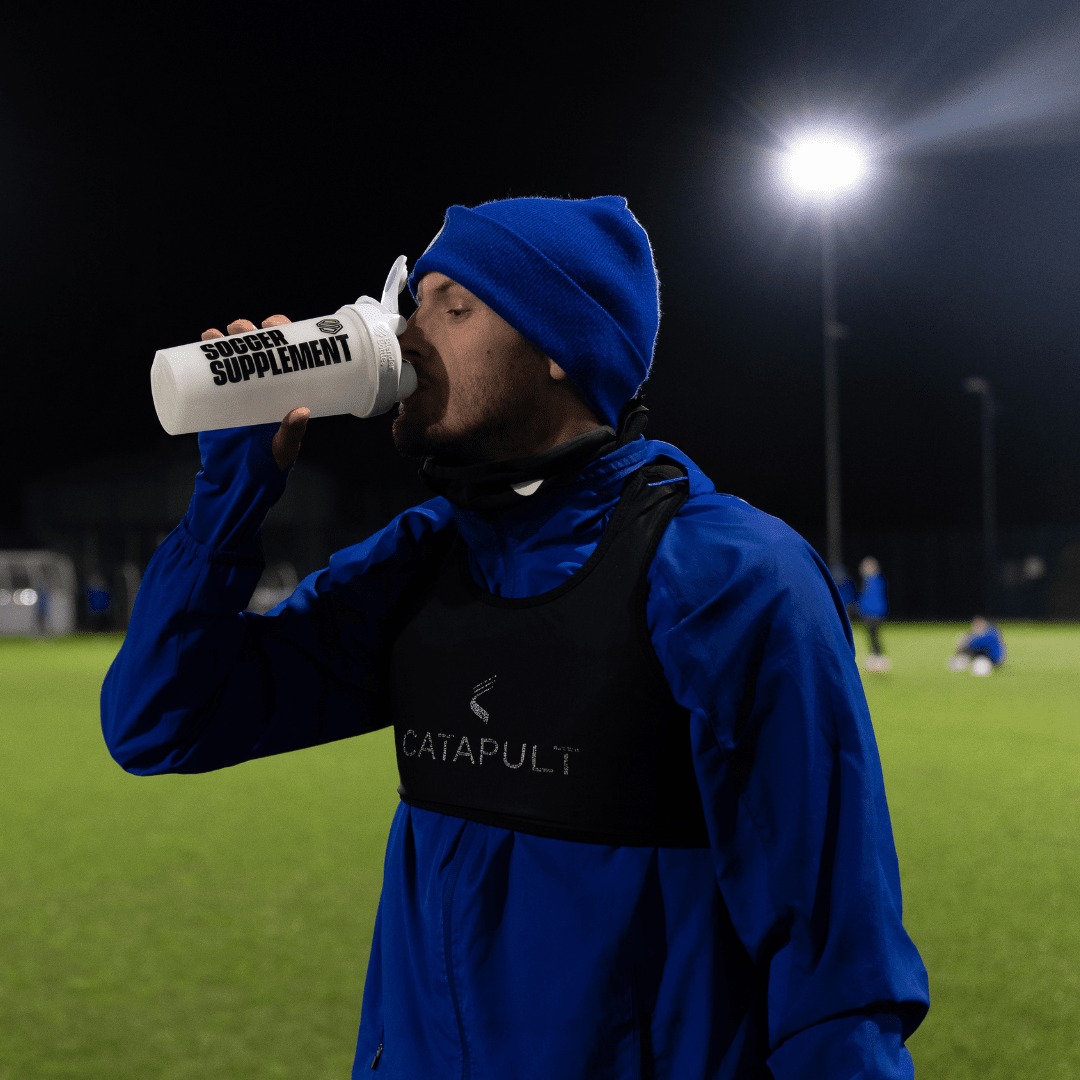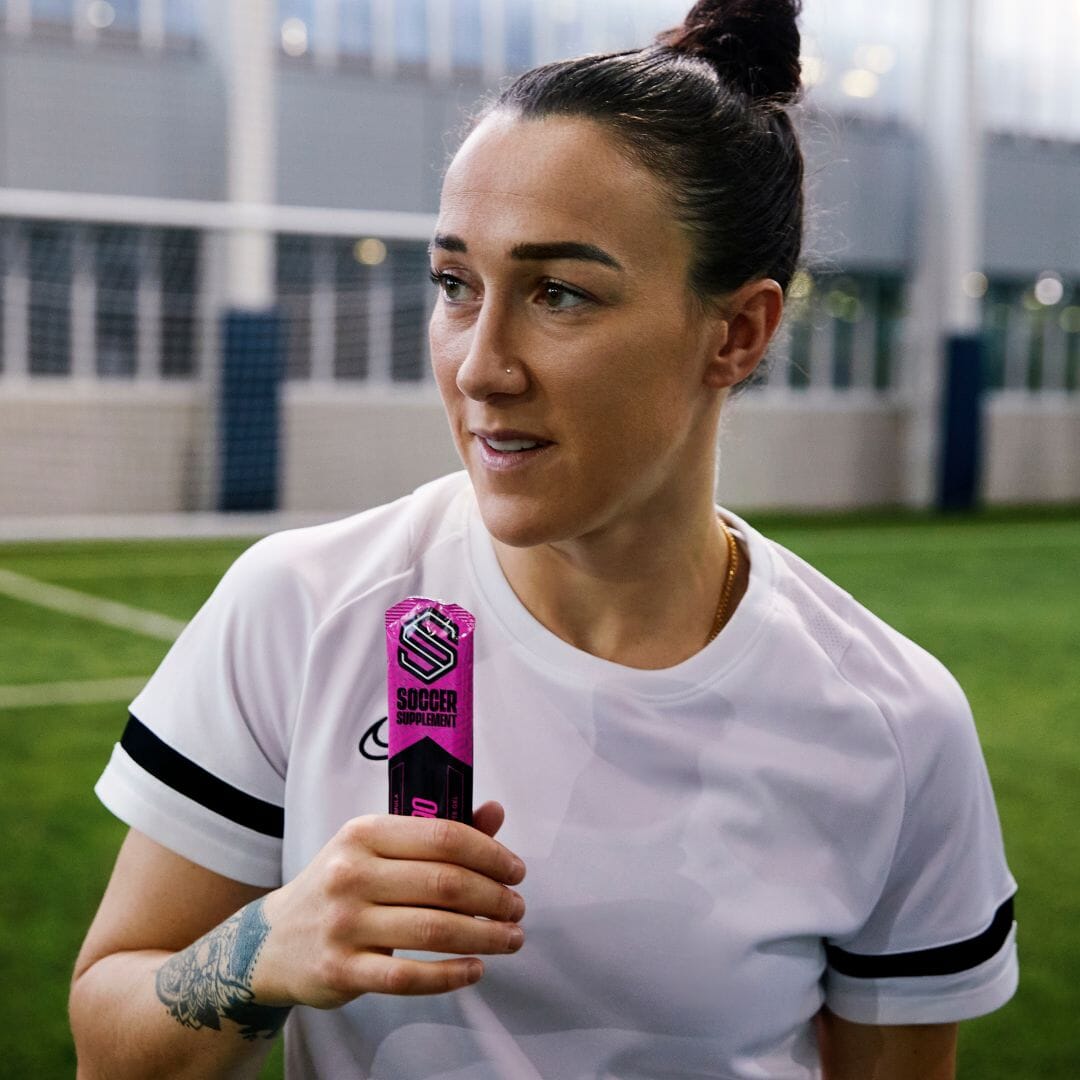As more people are turning to a vegan diet for the environment, animals and health reasons, many footballers may wonder whether plant-based is an avenue worth exploring or whether going vegan would mean sacrificing muscle, speed and strength.
These days, being vegan – which is the case for an estimated 2,200,000 Brits – doesn’t have the same negative stereotype of yesteryear, as many high-profile plant-based athletes prove that one can perform at the highest level on a vegan diet.
In fact, in the footballing world, several professional players have made the switch to plant-based diets, while League Two’s Forest Green Rovers are the world’s first entirely vegan football club!
Of course, while veganism can be a healthy way of life, ensuring you hit the right macro- and micronutrients is key for plant-based footballers wanting to perform. In this article, we explore the essential nutrients and how to hit them on a vegan diet.
Carbohydrates
All footballers need carbohydrates to ensure their glycogen levels are topped up to perform in regular training sessions and for 90 minutes on a Saturday.
Luckily, carbs tend to be an easy one for vegans to hit, considering a lot of plant-based meals are built around carb-rich foods such as beans, lentils and vegetables, while whole grains such as porridge oats, whole wheat bread and brown rice are also excellent sources.
If you don’t want to force down too many beans just before a match, you can also try energy gels such as our Fuel90® energy and electrolyte gel or Focus90® pre-match caffeinated energy gel. These popular gels deliver fast energy with a dose of electrolytes to boost performance.
Protein
One of the questions a vegan is often asked is ‘where do you get your protein?’. Thankfully, the answer is easy, as there are plenty of high-protein sources available to vegans, including tofu, tempeh, seitan and alternative meats, as well as beans, lentils, nuts, seeds, nut butters and soy milk.
However, be aware that many plant proteins don’t tend to contain the full range of essential amino acids. This means that eating a varied diet is the smartest idea, as it will ensure you are hitting the amino acids you need.
Taking a plant-based protein supplement, such as our Vegan Protein, is another way to ensure that you are consuming everything you need in a tasty and convenient way – perfect after an intense training session.
Iron
Iron is needed to transport oxygen to your muscles and is therefore a vital mineral for footballers. Whether you are vegan or not, a lack of iron is one of the most common deficiencies in the world.
While a vegan lifestyle rules out red meat – a typical source of iron on a carnivorous diet – it is still bursting with iron-rich foods, including beans, lentils, chickpeas, pumpkin seeds, chia seeds, quinoa and kale.
Be aware that iron is best absorbed by the body when vitamin C is also present, so eat foods rich in this vitamin at the same time – broccoli, peppers, oranges, strawberries, pineapple and kiwi, among others.
Calcium
Dairy products are seen as the prime food source for calcium, although they are far from the only sources.
Vegans can get all the calcium they need by consuming foods such as tofu, nuts, seeds and green leafy vegetables, along with fortified foods and plant milks.
B12
Vitamin B12 is an essential nutrient required for red blood cell formation, cell metabolism and nerve function. A B12 deficiency can be disastrous for footballers, as early signs include fatigue and lack of energy – not something anyone needs on a Saturday afternoon.
Unlike other vitamins, it can be difficult to get enough B12 naturally on a vegan diet. This means the best way to hit your B12 is to take a supplement, while you can also season foods with nutritional yeast and drink fortified milks.
Zinc
Zinc is an essential mineral that isn’t produced by the body, but is needed for a healthy immune system, wound healing, and growth.
Vegan footballers can get their zinc naturally through plenty of foods, including chickpeas, lentils, black beans, kidney beans, pumpkin seeds, cashew nuts, hemp seeds, and some vegetables such as kale, asparagus and mushrooms.
Omega
Omega 3 may be synonymous with fish oils, but there are plenty of plant-based sources to ensure you are getting enough of these essential fatty acids (ALA, DHA and EPA) – which is important for heart, brain and eye health.
Eating a variety of foods is wise as some will offer a good source of ALA (chia seeds, hemp seeds, flaxseeds, walnuts) and others offer DHA and EPA (nori, seaweed, algal oil). Using rapeseed oil as your main cooking oil is another way to boost your omega 3 intake.
As oils and seaweed aren’t always abundant in some diets, vegan omega 3 microalgae supplements are also widely available to help you meet your needs in a more convenient way.
Whether it’s your ethics or health pushing you towards a vegan diet, you are in good company with a growing number of plant-based athletes.
Of course, most of us don’t have the same access to nutritionists and private chefs as a professional footballer, but following a plant-based diet doesn’t mean you have to miss out on essential nutrients. You simply have to eat a sensible and varied diet, and take supplements if you need them.
Click here to shop our range of Elite Footballer Supplements











